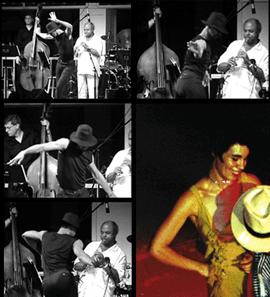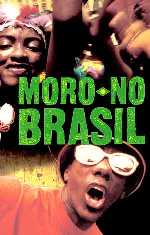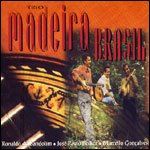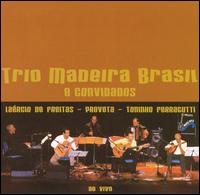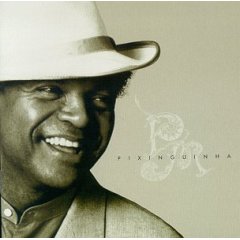 Today I received and have already enjoyed listening to my copy of Paulo Moura's award-winning cd-issue, 'Pixinguinha', a live-recording of a concert at The Carlos Gomes Theatre in August 1996, released 1998. As the title suggests, the music on the cd is devoted to compositions by Pixinguinha, and what a thrill it is to listen to these up-dated versions of classic choro. Reedplayer Paulo Moura unites with an ensemble of very skilled musicians, re-creating the spirit of Pixinguinha's famous group, Os Oito Batutas: Jorge Simas (violão de 7 cordas), Marcio (cavaquinho), Jorginho (pandeiro), Zé da Velha (trombone), Joel da Nascimento (bandolim) and Jovi & Marcal (percussion).
Today I received and have already enjoyed listening to my copy of Paulo Moura's award-winning cd-issue, 'Pixinguinha', a live-recording of a concert at The Carlos Gomes Theatre in August 1996, released 1998. As the title suggests, the music on the cd is devoted to compositions by Pixinguinha, and what a thrill it is to listen to these up-dated versions of classic choro. Reedplayer Paulo Moura unites with an ensemble of very skilled musicians, re-creating the spirit of Pixinguinha's famous group, Os Oito Batutas: Jorge Simas (violão de 7 cordas), Marcio (cavaquinho), Jorginho (pandeiro), Zé da Velha (trombone), Joel da Nascimento (bandolim) and Jovi & Marcal (percussion).It's a pleasure to celebrate the 50th entry at this blog recommending this great live-recording by Paulo Moura & Os Batutas. Tracklist inserted below.
1. Ainda Me Recordo 2. Segura Ele 3. Proezas De Solon 4. Cochichando 5. Ingenuo 6. Lamentos 7. Carinhoso 8. Misura E Manda 9. Batuque Na Cozinha 10. Oito Batutas 11. Pelo Telefone 12. Rosa 13. Naquele Tempo 14. Vou Vivendo 15. Um A Zero 16. Urubu Malandro
I also recommend a visit at Paulo Moura's official web. At his website you are having the opportunity to listen to lengthy audio tracks from his large output, moreover various video clips are available, too.
Jo

